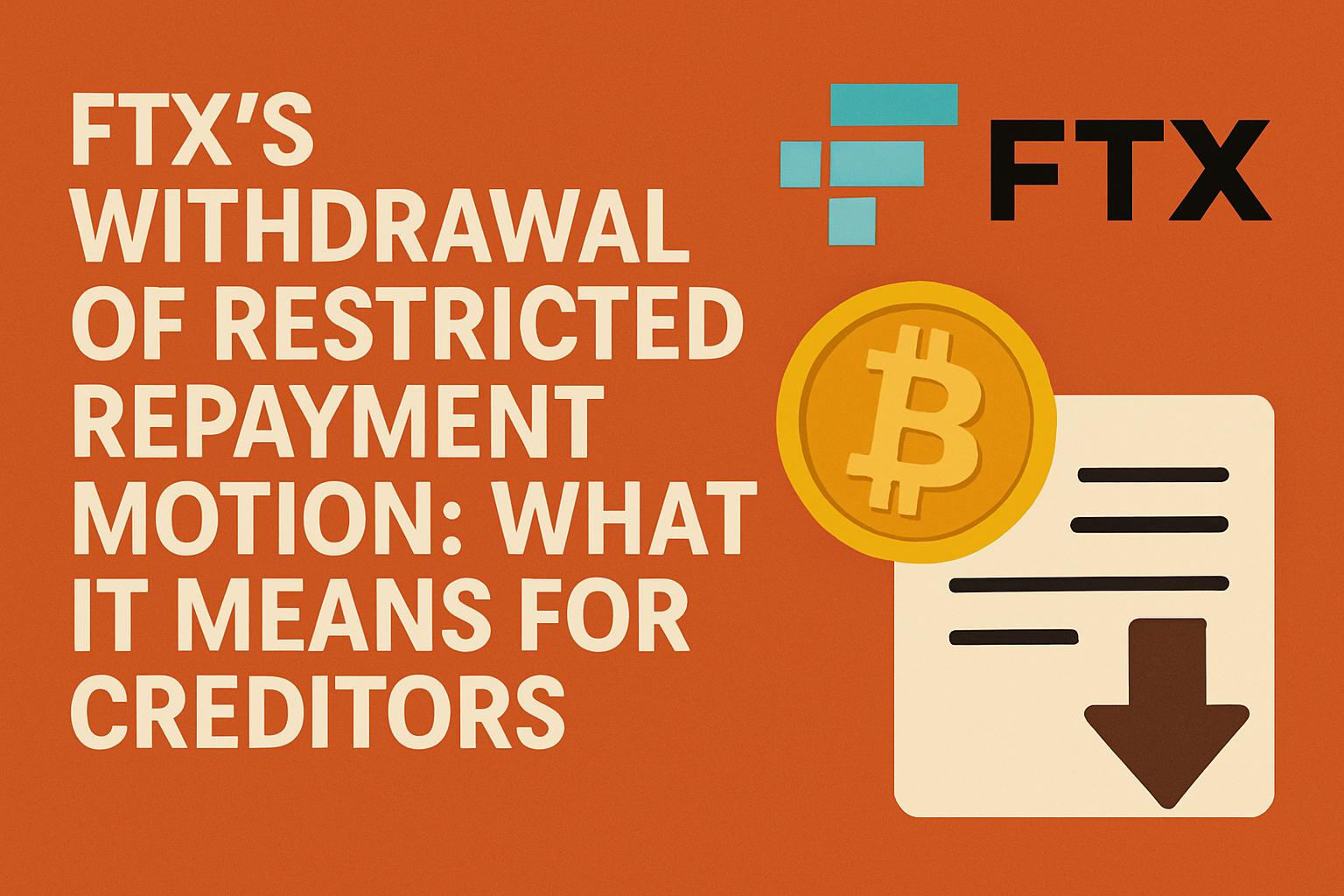The cryptocurrency exchange FTX, currently embroiled in bankruptcy proceedings, recently made headlines by withdrawing a contentious motion that would have affected creditors in several countries, including China and Russia. Originally proposed as part of the Chapter 11 restructuring process, FTX’s ‘Restricted Jurisdiction Procedure’ sought to evaluate the feasibility of making payments in 49 specific regions worldwide. The motion’s withdrawal, however, represents a temporary win for creditors but leaves the door open for potential reintroduction in the future.
Understanding the Restricted Jurisdiction Proposal
Initially, FTX had pitched the motion to a bankruptcy court in Delaware, aiming to ensure that up to $8 billion in creditor claims from regions like China, Russia, and Ukraine could be legally and securely distributed. This sum is a fraction of the $16 billion in total assets available for distribution. However, the controversial proposal threatened to mark areas as ‘restricted’ if local legal compliance for payouts couldn’t be confirmed within a 45-day window, potentially forfeiting claims and reallocating funds to other creditors.
Backlash and Withdrawal
The proposal was met with staunch resistance, particularly from Chinese creditors, prompting formal objections. Many argued that categorizing China as a restricted zone lacked a sound legal basis. Under intense pressure, FTX opted to pull back on the motion as of November 3rd. Although this withdrawal halts the motion’s immediate impacts, FTX has indicated that it might revisit the proposal at a later stage.
FTX Founder SBF Denies Bankruptcy Allegations
Amidst these legal maneuvers, FTX’s founder, known as SBF, has remained vocal about the company’s status. On November 4th, SBF appeared in court for an appeal hearing in New York, arguing that both FTX and its affiliate Alameda Research never went bankrupt, accusing the bankruptcy legal team of misleading the court and mismanaging asset sales.
In SBF’s perspective, FTX could have remained solvent through the crisis period of late 2022 had it continued operations. This view, however, clashes with external opinions, especially as November 2022 marked a significant downturn due to revealed secret fund transfers with Alameda, triggering a cascade of withdrawals.
The Pardon Aspect
The controversy does not end with court hearings. SBF’s family is also reportedly appealing to former President Donald Trump for a pardon. Trump has previously granted pardons to controversial figures, raising speculation about the potential for clemency. However, with the odds of SBF’s release circulating in the public sphere, such a pardon seems uncertain.
As the scenarios continue to evolve, FTX’s situation serves as a complex tapestry of legal, financial, and ethical considerations, highlighting the intricate balance of global cryptocurrency operations and adherence to jurisdictional laws.

![[News] Bitcoin at a Turning Point? 10x Research Signals a Bullish Macro Shift Ahead](https://cryptoexplores.com/wp-content/uploads/2025/06/new20250616.jpg)
![[News] Binance Lists $HOME, the Gas-Free, Bridge-Free All-in-One DeFi App](https://cryptoexplores.com/wp-content/uploads/2025/06/news20250617.jpg)